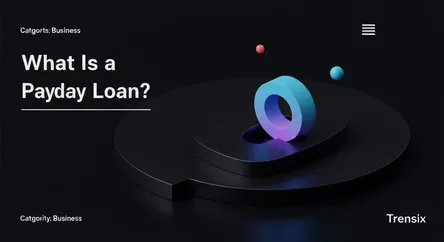Business
What Is a Payday Loan?

Learn about payday loans: small, high-interest loans meant to be repaid on your next payday. Understand the risks and how they work.
What is it?
A payday loan is a small, short-term, high-interest loan intended to cover a borrower's expenses until their next payday. Also known as a cash advance, it's typically for a few hundred dollars and requires repayment in a single lump sum on the borrower's next pay date. The cost is usually a fixed fee, which translates to a very high annual percentage rate (APR), often reaching triple or quadruple digits. Accessing these loans is relatively easy, often requiring just a bank account and proof of income, with minimal credit checks involved.
Why is it trending?
In times of economic pressure, rising living costs, and unexpected financial emergencies, payday loans are trending as a quick-fix solution for people with limited access to traditional credit. The convenience of online applications and instant funding decisions makes them appealing for those needing immediate cash. As household budgets tighten, more individuals are turning to these accessible but costly options to bridge financial gaps between paychecks, despite the well-documented risks associated with them.
How does it affect people?
Payday loans can have a significant negative impact. The extremely high interest rates can trap borrowers in a cycle of debt. If they cannot repay the loan in full, they may be forced to 'roll over' the debt, incurring additional fees and pushing them deeper into financial trouble. This debt cycle can damage a person's credit score, making it harder to secure affordable credit in the future. It creates significant financial stress and can lead to a long-term pattern of dependency on high-cost borrowing.